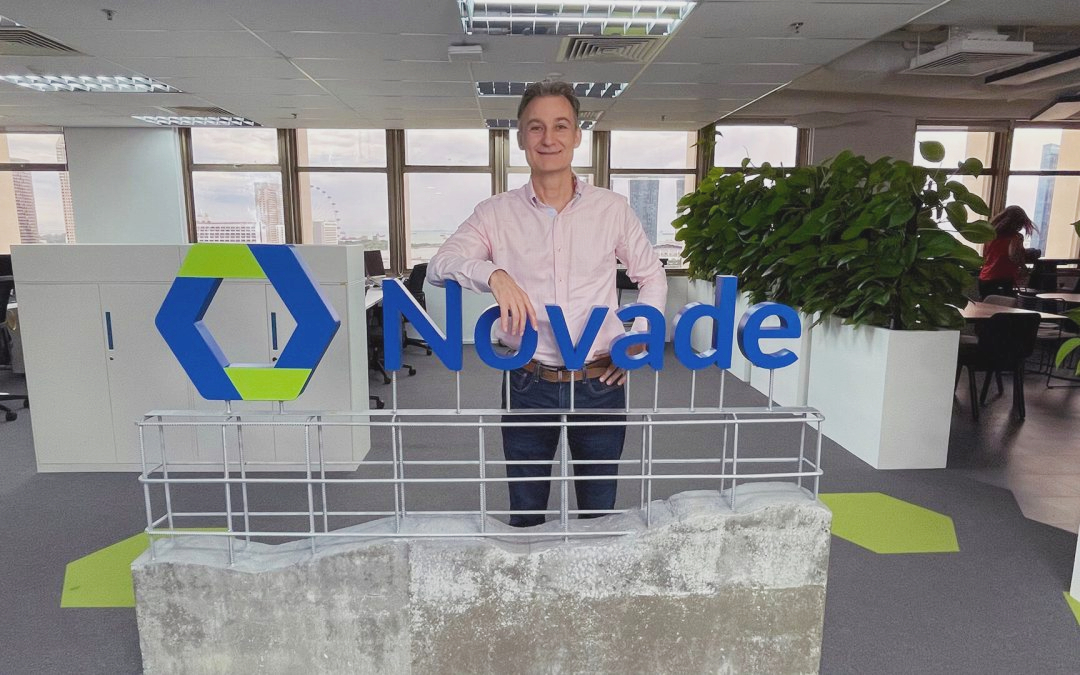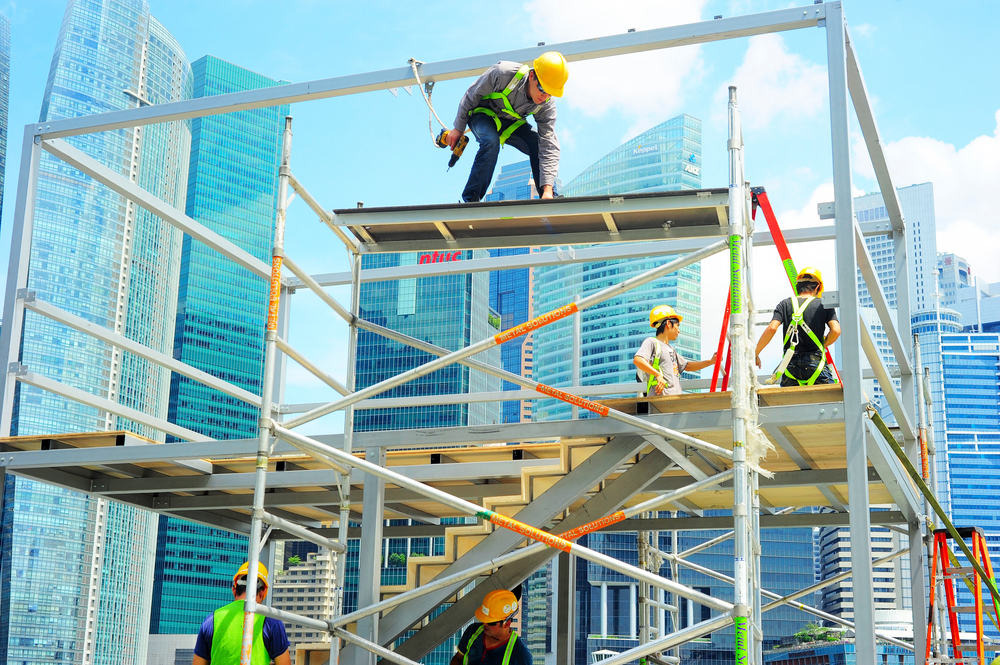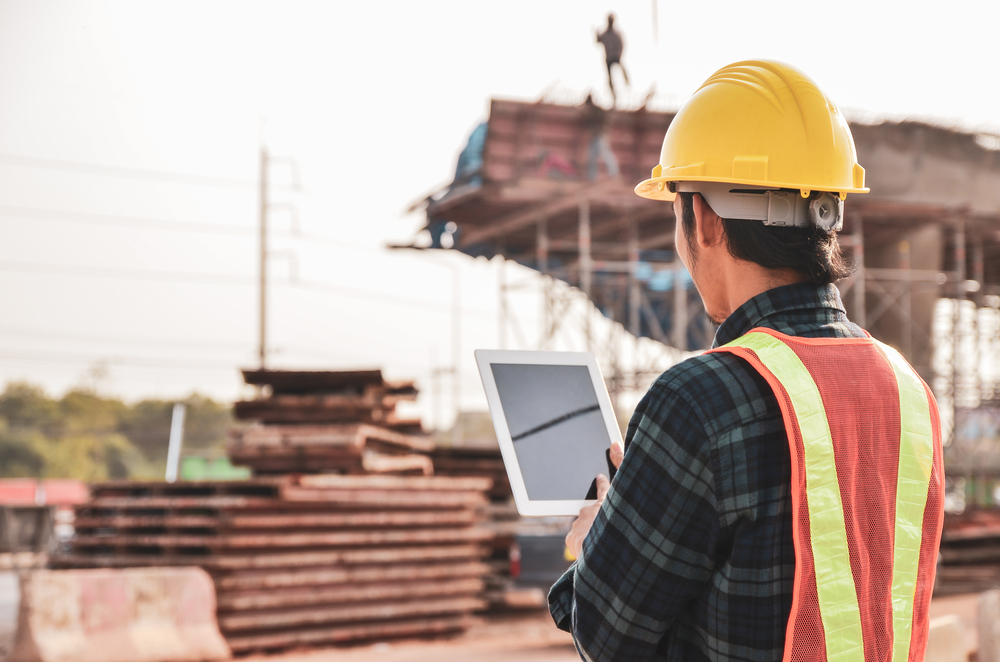Meet the man behind the construction sector’s innovative app Novade
With his app Novade utilising data and machine learning to simplify site management, Denis Branthonne is leading digital transformation in Asia’s construction industry

The construction industry is famously slow to change. In recent decades, the desktop computer and the Internet drove significant innovations. But both technologies pale in comparison to the impact of the smartphone, which has utterly revolutionised field management.
Denis Branthonne saw this change coming in mobile technology and knew what it meant. In 2014, he left his role as vice-president at Autodesk in Singapore, where he’d overseen Asia and emerging markets for more than a decade, and launched Novade, which is billed as a “next-generation digital solution for site management.” The iPhone 5 was then dominant in the market and costs had fallen to the point that it was finally practical to equip key workers in the field with their own mobile devices to capture and share information.
“Desktop computers and the Internet didn’t mean much for someone in the field. The mobile phone meant something,” Branthonne says. “Frankly speaking, this is what had always been missing in this industry.”
The concept took off and Novade today employs 140 people in 20 countries—the app is available in eight languages and can easily be configured for more—while counting around 200 enterprise clients.
From the beginning, and somewhat to Branthonne’s surprise, clients tended toward large general contractors and real estate developers, as opposed to the SMEs he’d been expecting. “We don’t necessarily have a lot of clients, but most of them are very large companies,” he says, noting that 90% of the projects that use Novade are blue-chip affairs that are worth above USD100 million.
In April, the company released Novade Lite, a new version of the app designed for small- and medium-sized projects and aimed at specialist contractors, homebuilders, and service providers.

What is Novade designed to do?
It’s all about digitising field operations. First, it helps companies be compliant with health and safety rules and regulations, environmental regulations—which are becoming more important—and comply with quality control. It reduces the cost of compliance because there’s a lot of paperwork. Second, it helps track progress and improves performance in the field.
For example, every time our clients use Novade for permits to work, they save USD40 per permit to work on average. That’s the amount they save in compliance and administration. I’m not talking about all the things you can do with all the data and improvements—just blunt cost reduction on compliance. On some very large sites, you’re talking about 50 to 60 to 100 permits to work per day.
Desktop computers and the Internet didn’t mean much for someone in the field. The mobile phone meant something. Frankly speaking, this is what had always been missing in this industry
That’s a lot of paperwork.
It’s incredibly time-consuming. If you get 100 papers coming in with hundreds of subcontractors involved, it’s very messy. If you don’t do it right it could be dangerous and you could be legally exposed if you haven’t done your job. We’ve completely digitised this. We currently do around 100,000 permits to work per month in Singapore.
What is interesting is that when you start collecting such a large amount of data, obviously you can start applying machine learning and try to understand what’s going on. Humans can’t make sense of these patterns. But that’s where AI starts to kick in. If you standardise enough of the inputs you can start detecting stuff.

Tell us more about the AI component of Novade.
Here’s another example. We’ve fully digitised the handover process for residential properties. Imagine an apartment in a building where you have 500 units. Traditionally, a buyer receives the keys and is handed a piece of paper to write down any problems. Someone who works for the developer then creates an Excel spreadsheet and sends information by WhatsApp to the subcontractors who do the job.
We’ve completely digitised this. If you find a problem, you take a picture that’s sent in real-time to the developer, who assigns it to a subcontractor. He knows exactly where to go. When the job is done he takes another photo and you can check that it’s done sufficiently and say whether you’re happy.
But now imagine that I’m a real estate developer and I’ve done numerous projects with Novade. If you have, on average, 20 defects per home, and 500 units per condo, you’re talking about 10,000 defects. Data done on multiple projects like this is gold because developers can analyse and understand the trends. For instance: Which subcontractors are creating more problems?

Who is your main competition then?
Excel, paper, and WhatsApp. In every country, you’ll have three or four startups and 20 to 30 employees trained to do this, but it’s tough. The big boys—the big U.S. companies—like Autodesk are trying to come, but the standards here are different. We collaborate with them. But there’s no other homegrown company in Asia with more than 50 employees working in multiple countries. We’re the only ones.
Are there areas where you’re looking to expand the functionality?
There are three areas we’re investing in heavily. The first is in analytics and AI. The more data we capture, the more our clients want to analyse and understand that data to gain insights.
The second is connectivity. As the system is more adopted and you analyse data, you also want to compare field data with contractual or design information. So we’re working on engaging with companies like Autodesk, Procore, Microsoft, and others, so people can easily plug in data from Novade to other systems.
And third, we have invested to make it easier for clients to get started on smaller projects. We have just launched a lighter version of the platform: Novade Lite.
The original version of this article appeared in Issue No. 172 of PropertyGuru Property Report Magazine. Write to our editors at [email protected].
Recommended
Why everyone is moving to Selangor and Johor: Malaysia’s real estate comeback
Malaysia’s upturn in fortunes is especially prevalent in secondary destinations such as Selangor and Johor
Penang’s silicon boom: How the US-China tech war is supercharging local real estate
Penang’s booming semiconductor industry has created ripples within the local real estate sector
New leader, new opportunities: How Hun Manet is shaking up Cambodia’s real estate game
Hun Manet is overseeing decent economic growth and widening access to the country’s real estate market for foreigners
Singapore embraces inclusive housing reforms amid resilient demand
The Lion City’s regulatory strength continues to exert appeal for international investors








